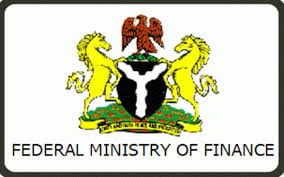Following the destruction of public and private properties and businesses that accompanied the #EndSARS protests, businesses have been counting their losses and economy experts have listed the immediate challenges the crises have thrown up against Nigeria’s struggling economy.
Lagos State Government, which is the worst hit by the crises has put the replacement cost at N1 trillion while overall cost to the private businesses is put at several billions of US Dollars.
According to industry executives and economists, the result of this destruction will manifest in fall in real Gross Domestic Product, GDP. It is also expected that the government will be left with no other option than to embark on extra budgetary expenditure and further borrowing to fix the damaged infrastructures.
Commenting on the issue, the Speaker of the House of Representatives, Hon. Femi Gbajabiamila said the Governor of Lagos State, Babajide Sanwo-Olu, had told him that the state may spend up to N1.0 trillion to fix the damages done to infrastructures in the state by the protesters. He also added that the government would be supported by the legislature to compensate private citizens affected by the destructions.
The Chairman of the South West Governors, Rotimi Akeredolu, who led his colleagues on a visit to the Lagos Sate Governor stated, “We are indeed surprised at the extent of damage to lives and properties in Lagos. We will be right to say Lagos was turned into a war zone.
“We are deeply concerned with the ease with which public buildings, utilities, police stations and investments of our people have been burnt despite the proximity of security agencies to those areas.”
Professor Uche Uwaleke, a Financial Economist and Professor of Capital Market at the Nasarawa State University said, aside from the loss of precious lives of many of whom must be family breadwinners, it may be relatively easy to quantify the explicit costs to government, groups and individuals of properties destroyed in the wake of the EndSARS crisis which runs into billions of US dollars, the implicit costs from curfews in several states, movement restrictions, reputational risk and impact on investment cannot be quantified.
He stated further that reduction in foreign investments should be expected, which is likely to affect external reserves and put more pressure on the foreign exchange market and the exchange rate. The stock market is likely to witness dampening of investors sentiments. The overall level of poverty and unemployment will also likely rise.
Prof. Uwaleke then suggested that government should move fast to restore normalcy and confidence in the economy and speedy implementation of socioeconomic reforms in line with the demands of the EndSARS protesters.
READ ALSO: Economic Impact of #EndSARS Protest: Investors Suffer N113bn Loss
While acknowledging that Lagos controls at least 50 per cent of the nation’s economy, the Managing Director, APT Securities & Funds Limited, Mallam Garba Kurfi, pointed out that the cost of the protest should not only consider the properties destroyed but also consider the vehicles that were stopped at Berger Junction in Lagos and their items were taken away, as well as the man-hours wasted through the curfew and lockdown for at least four days that people were not allowed to do their legitimate works.
Analysts at Fidelity Securities Limited, said: “The EndSARS protest and its eventual escalation would cost the Nigerian economy way more than N700 billion initially estimated by the Lagos Chamber of Commerce. The analysts noted that it may take a while for business to run at full capacity as the government as well as the private sector will first have to channel funding into the destroyed infrastructure in a bid to restore things back to the way it was, before even thinking of further improving on the infrastructure.
According to Ayodeji Ebu, Senior Economist/Head, Research & Strategy, Greenwich Merchant Bank, the unrest and subsequent 24 hours curfew imposed by the Lagos State Government to restore peace and order may have cost the state at least N54 billion each day that the curfew lasted. He opined that the social unrest would impact negatively on direct investment in the remaining part of the year as well as in the first quarter of 2021.
Continuing, he said: “With Lagos the centre of the civil unrest, which account for 70 percent or $1.1 billion of total capital importation in the second quarter of 2020, we expect this to further impact on direct investment in fourth quarter of 2020 and the first quarter of 2021.”
The Electricity Distribution Companies of Nigeria, DISCOs, yesterday also decried destruction of equipment it uses to service operations and effective power delivery to thugs who hijacked the peaceful protest. The DISCOs said the outcome of such action would result to low revenue from electricity collection bills on power supplied them for October. “I tell you; assets are been destroyed, which is a significant impact on the industry.

